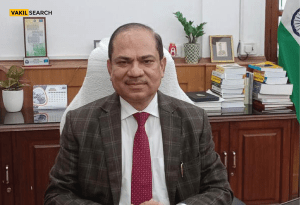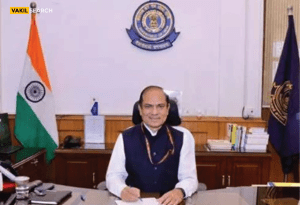CBIC Examining Measures to Protect Domestic Steel Industry
The Central Board of Indirect Taxes and Customs (CBIC) is assessing the possibility of imposing safeguard duties on steel imports. This move aims to shield the domestic steel industry from the influx of cheaper imports, particularly from countries like China, South Korea, and Japan.
According to CBIC Chairman Sanjay Kumar Agarwal, the Directorate General of Trade Remedies (DGTR) is currently conducting investigations to determine whether safeguard duties or anti-dumping duties are warranted. The final recommendations will be sent to the Department of Revenue for further evaluation.
CBIC’s Tariff Rationalization and Its Impact
The Union Budget 2025-26 has introduced key measures to streamline India’s tariff structure. The government has eliminated seven different tariff slabs, reducing the average customs duty from 11.66% to 10.66%. This restructuring aligns India’s tariffs with those of ASEAN nations, countering the perception that India imposes excessively high import duties.
Agarwal emphasized that this restructuring is more about simplification rather than revenue loss. The government has adjusted the Agriculture Infrastructure and Development Cess (AIDC) to compensate for revenue changes, ensuring a smooth transition for industries.

Challenges from Cheap Steel Imports
The domestic steel sector has been under pressure due to a surge in low-cost imports, particularly from China. The Indian steel industry has urged the government to implement safeguard measures to prevent market distortions and protect local manufacturers.
While domestic steel producers support the imposition of safeguard duties, certain industries relying on steel imports have expressed concerns. They fear that higher duties could lead to increased production costs, affecting their competitiveness in the global market.
CBIC’s Role in Trade Relations and Policy Decisions
India’s trade relations with key partners, including the United States, may also play a role in the final decision. The U.S. has often criticized India’s tariff policies, with former President Donald Trump labeling the country a “tariff king.” However, the recent tariff rationalization efforts signal India’s commitment to a more balanced trade approach.
The government is carefully evaluating all aspects to ensure that any duty imposition does not violate international trade agreements or lead to retaliatory measures from exporting nations.
GST on Petroleum Products: A Pending Decision
Beyond steel imports, the government is also deliberating on bringing petroleum products under the Goods and Services Tax (GST). Currently, taxes on petrol, diesel, and natural gas remain outside the GST framework due to concerns from states regarding revenue loss.
A Group of Ministers (GoM) is reviewing the feasibility of GST rate rationalization. Their recommendations, once finalized, will be presented to the GST Council for consideration. However, reaching a consensus on this issue remains challenging.

CBIC’s Next Steps and the Road Ahead
The CBIC’s decision on safeguard duties will have a significant impact on the Indian steel sector. As investigations continue, the government must strike a balance between protecting domestic industries and maintaining trade stability.
The final call on safeguard duties, tariff rationalization, and GST reforms will shape India’s trade policies for the years ahead. Businesses and stakeholders eagerly await the government’s next steps, as they will determine the competitiveness of India’s industries in the global market.
Stay updated with the latest tax and trade policies! Visit VakilSearch for expert insights on GST, customs duties, and business compliance.
- Manan Kumar Mishra Re-elected as BCI Chairman for 7th Term - March 1, 2025
- EPFO Retains 8.25% Interest Rate on PF Deposits for 2024-25 - February 28, 2025
- Bombay HC to Rule on Volkswagen’s $1.4B Customs Duty Case - February 27, 2025

